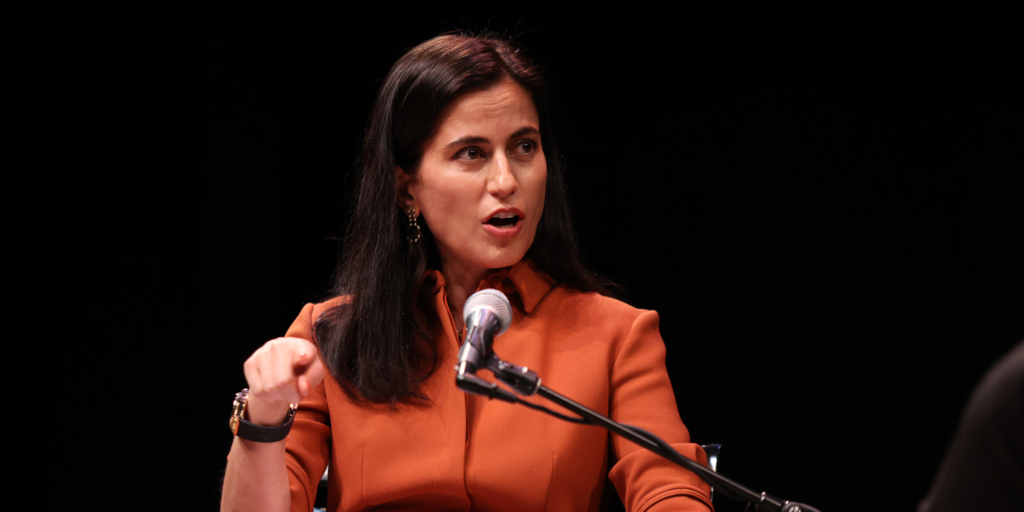Issues of the Court: Asking Hard Questions + Seeking Common Ground, is a new two-part series at the JCC, hosted by former federal and state prosecutor Tali Farhadian Weinstein. The series welcomes legal experts in conversation on upcoming Supreme Court decisions, exploring major issues facing our country and society.
At the second event in the series on May 17, we’ll hear from special guest Jeannie Suk Gersen, Professor of Law at Harvard Law School, who will discuss Students for Fair Admissions, Inc. v. President and Fellows of Harvard College and its impact on affirmative action in college admissions.
“This term at the Supreme Court may turn out to be more consequential in terms of its impact on American life than last term…And we really wanted to empower people to know what’s happening and try to do something about it,” shared Tali Farhadian Weinstein in first part of the series, where she met with Former United States Attorney General Eric Holder to discuss Moore v. Harper, and its impact on democracy, the courts, and how elections are run.
In the case we will discuss on May 17, petitioner Students for Fair Admissions sued Harvard College over its admissions process, alleging that the process violates Title VI of the Civil Rights Act of 1964 by discriminating against Asian American applicants in favor of white applicants. Harvard admits that it uses race as one of many factors in its admissions process but argues that its process adheres to the requirements for race-based admissions outlined in the Supreme Court’s decision in Grutter v. Bollinger. Students for Fair Admissions, Inc. v. President and Fellows of Harvard was argued before the Supreme Court in October 2022, and the decision on this case will be issued within the next two months.
Issues of the Court: Asking Hard Questions + Seeking Common Ground is an exploration of issues facing our country and society, giving voice to a range of perspectives on cases before the Supreme Court. Join us on Wed, May 17, at 7 pm, for this lively conversation about college admissions and the Civil Rights Act. Click here to reserve your tickets.










Get rid of legacy admissions. Get rid of race-based admissions.
Spots should go to the highest achievers. Sure, that includes strivers who faced more difficult circumstances. But those should be done without regard to race, color, or family connections.
You want a spot in a top school? Work for it.
It is a very tricky decision. Race-based affirmative action is ridiculous. A child of millionaires who went to an elite high school should not get preference solely for checking off a box. Especially since the children of affirmative action beneficiaries are now applying to college – it has run its course. Class-based affirmative action is more acceptable as you are rewarding those who did their best with limited means.
Affirmative action also creates an inferiority complex for the beneficiaries as they wonder whether they truly deserve to be there or just got in due to their race. I have had very talented minority colleagues who resented other members of their minority group who clearly did not deserve to be there.
However, universities should have a way to differentiate beyond grades and test scores. A university full of students who spent their lives prepping for tests and can’t carry on a conversation would be a dull place.
When you pick a dr you want the best possible dr. Well that will only happen if schools who train these doctors pick the best possible candidates. If you water down higher education you water down society. The time to intervene to make things more equitable is early childhood and elementary school. During these formative years the stage is set for future success.
What is the JCC?
Oh, got it – Jewish Community Center.
We should not be using skin color or race as a qualification for college or a job.